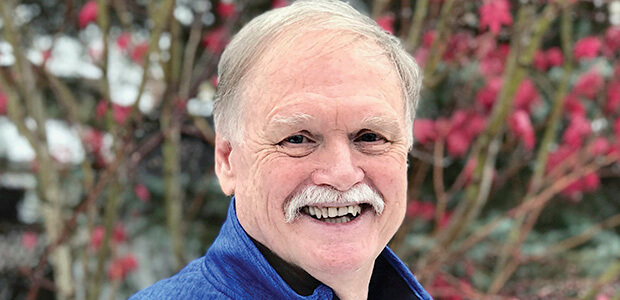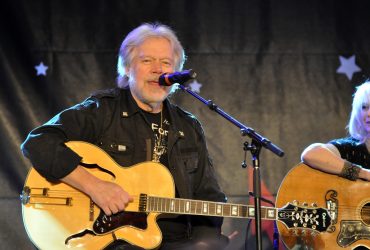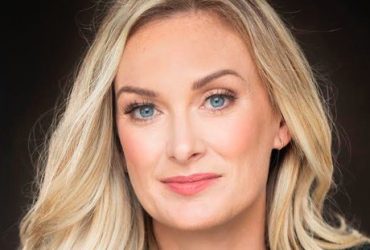This profile originally appeared in the December/January 2020 issue of WiFi HiFi Magazine.
The interview with Bryston’s dynamo, James Tanner, began rather normally. Born in Toronto, he moved to Elliot Lake, ON when he was 10. His father, also named James Tanner, was a stationary engineer for the mines. He was laid off when the mines closed three years later and the family moved back to Toronto. But when I asked about siblings, James did not give me the answer I was expecting.
“I am the only natural-born but we always had at least 13 kids in the home of which five were adopted. My parents were what they called a rescue home. If there were kids who were caught in a situation where the family was fighting or the husband shot the wife, we would get the kid for the week, or the month, or however long it took to find them a safe home.”
The family home back in the ‘60s had three bedrooms in the basement and three upstairs. James shared a room with three of his sheltered friends. So it would be an understatement to say that James grew up in a family where there was always a lot going on.
“I had to be independent. I remember when I got my first car, a ‘59 Chevy, and I drove to Florida with my buddy. I was gone a week and-a-half. When I came back, my parents didn’t realize that I’d even gone.” The family used to get bread delivered to the back door. “We’d get 40 loaves at a time. That’s a lot of sandwiches. I remember the bread delivery guy asking what the Hell we did in that house.”
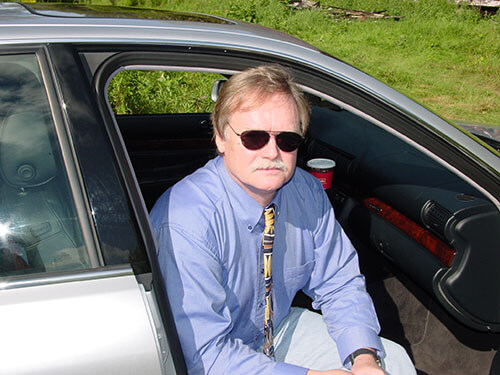
It came to an end in a way that may have inspired one of James’ later career choices. “We had a house fire in 1966, lit by one of the kids who was staying with us. Nobody got burned. Luckily, everybody got out. I remember taking the hose from outside and going downstairs and trying to put it out. I was 17 at the time. I kept low to the floor and then the fire department showed up and finished it off. The insurance company would not pay out because we had too many kids in the house.” As a result, the rescue home was no more.
“The tragedy was for the kids who were 10-13 years old and there wasn’t much chance of them ever being adopted. I lost track of many of them. Later, I found out that some had committed suicide. I suppose that later in life I was a reasonably good parent when it came to coaching because there weren’t too many circumstances I hadn’t had some experience with.”
“Before my dad died at age 82 in 2002, one day we were sitting on the porch of a condo that my wife and I had bought for my mom and dad to live in. He had retired but had some bad investments. Dad said to me that he felt really badly about the fact that he should be taking care of me, I shouldn’t be taking care of him. So I said, ‘Look dad, I wouldn’t be where I am today if it wasn’t for you. You were a stable source, I knew I was loved, I knew he cared about me and wanted the best for me, that has a lot to do with where I ended up. As opposed to some of the other kids I saw who had no guidance and no support whatsoever.’ Hopefully that made him feel better. I was lucky to have had the opportunity to have that conversation.”
As a father of two boys himself, James preferred not to take an authoritarian approach. “I remember when one of my sons started smoking. Rather than attack him, I went into his room and said, ‘Look, if you want to kill yourself that’s up to you, but I’m not going to let you smoke in the house.’ Guidance worked better. A couple of weeks later, he wasn’t smoking anymore.”
When James was in grade 13, he had a part time job in the morning sorting mail for Retail Credit Company. Their business was in verification of insurance claims looking for fraud, sending inspectors to check on people making disability claims. While working there, he met two co-workers who were firefighters, and they asked, “Hey kid, what are you going to do after grade 13?” James answered, “I’m going to go to teacher’s college and become a history and humanities high school teacher.” They asked him why he didn’t join the fire department and take advantage of all the time off and he could still go and get his degree. “So I went down to the Scarborough Civic Centre in mid-August and said I’d like to join the fire department. They gave me an IQ test and an eye test and I left. I got a letter Sept 2nd asking me to report for duty October 2nd.” He had already applied to the University of Toronto for teaching but squeezed everything in and managed to get his Honours B.A. while still at the fire department. “But when they put me in the classroom, I realized that this wasn’t for me. I preferred the fire department, and that part of my income continued for 27 years.”
But James has another parallel career story. As early as age 13, he remembers his own dad spending days tinkering with big console stereos, trying different speaker drivers, and later building Heathkits. In his late teens, James began getting into hi-fi himself. “I went into Star Television at 1912 Avenue Road in Toronto in the late ‘60s and bought a Dynaco 400 kit and built it. Then I bought a pair of Dayton-Wright electrostatic speakers. Any audiophile will tell you that was too much of a load for the Dynaco.”
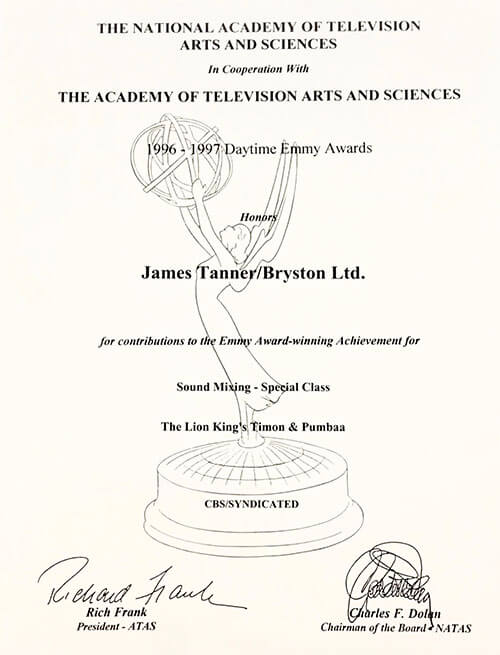
James wanted to beef up the amp so it could better drive the speakers. “Star TV told me about a guy they knew who could add another output stage and strengthen the power supply. So I called him up and met Chris Russell at Bryston. It was 1973 and Chris was working for his dad at the time.”
Bryston’s core business was medical electronics… blood analyzers, et cetera. Chris did the modifications and pimped James’ Dynaco 400. “When I learned that Chris was considering building amplifiers, I was all over him to make it happen.” The first amp that Chris built was 100 Watts per channel and called a Pro3. “The parts Chris was using were one per cent tolerance, medical-grade semiconductors from the medical electronics industry, and he had some ideas like running dual power supplies and a high slew rate design. There was a recording studio called Eastern Sound. They had a shoot-out and their new engineer was going to choose the amp they were going to use. Chris and I went down and saw all the benchmark amps of the day lined up… Dunlap-Clarke, Marantz 500, Crown DC300, and this little Bryston 100W/ch. amp. The Bryston won the shootout. Many years later, that engineer, Stewart Taylor ended up working for Bryston.”
So James and Chris went back to Chris’ dad and said they had this order for 10 amplifiers, and asked permission to start building amps at one end of the factory. He agreed. “Within three years, Bryston’s business had shifted strictly to building amps. Our big break came when we went to the Chicago Summer CES in the late ‘70s and walked around asking prominent speaker companies to try out the first Bryston 4B. Jon Dahlquist agreed and, as luck would have it, Peter Aczel from The Audio Critic was there. He said he loved the sound of the amp, but hated the boastful slogan, ‘The World’s Best Amplifier.’ So Chris and I gave Peter a 4B to review, and the review came out and said, essentially, it is the world’s best amplifier. That really launched Bryston.”
The company expanded to become Bryston Marketing, a company distributing DCM Time Window loudspeakers as well. James was appointed Canadian sales manager, while at the same time working for the Toronto fire department. “Then I got a call from Dave Johann who had just founded Whitby Audio and he said he really wanted to handle Time Window. I met with Dave and it wasn’t long before he offered me a partnership in Whitby Audio.” James decided that he was going to accept and bowed out of Bryston in ‘79. In 1984, Chris’ father had died and Bryston approached James with an equity offer in their company. From ‘84 – ‘94, James handled both his fire department job and Bryston. “The hours were 14 days on and 14 days off. It was at the firehall that I met my wife, Jacquelynn, who was Miss Fire Prevention. It was lucky that I was already involved in audio because as we were looking for a house, it had to have an appropriate room where I could build my hi-fi system. Audio had always been a passion of mine.”
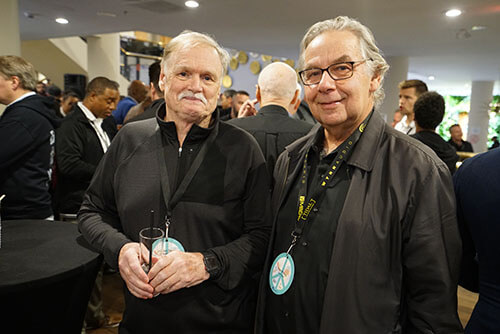
“My only regret in life is that I was not more available for my two sons. Clayton is now a police officer in Toronto and Adam works as a technician at Bryston.” In a sense, James is making up for it now as he is really deeply involved with his grandkids, spending 3-4 days a week with them.
When James told me he was 73, my jaw dropped. He plays hockey three days a week. “Hockey was always something I did. I got to try out with the World Hockey Association when I was 27, and I felt that I would be at best a medium player at that level, so I decided to stay with the fire department.” He played on the fire department provincial team at a high level. The best players in the fire department would play the police and even some of the national teams in Europe. He competed in Finland and Sweden. “When Bob Rae’s NDP Government came into power in Ontario, they lowered the retirement threshold so I left the fire department with a full pension in 1994 at age 48 because I had started when I was just 20.” That’s when he went full time with Bryston.
“I had an amazing time with Bryston. We were distributing PMC speakers and had a serious pro and studio business. I was going into the U.S. and finding myself in the control room looking at these huge soundstages where you’d have the Los Angeles Philharmonic sitting there playing. It really gave me a lot of insight to balance my audiophile knowledge of the home side of the equation. This is how recordings are actually made, and how they’re mic’d. The Emmy I got was definitely a real highlight of my life.”
“I’m also proud of the fact that I came up with two really good ideas which helped Bryston a lot. One was the digital player. There were none of those available when I first came up with the idea. I had the idea of using the USB as the main source, and building a dedicated computer essentially to do one thing only: Play the music file. I feel I helped Bryston get into the digital business. If all you do is build amplifiers, you’re dead. The second idea was to develop active systems. Everything improves when you go active. So I feel good about that.”
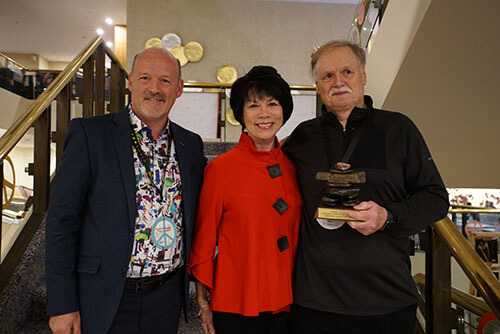
“Going back 20 years, I went to Singapore to do a show. A young couple came in to listen to the PMCs and our amps. We chatted about his PMCs and the 4B he had at home and I gave him a little more info. Later on that evening, the distributor took us out for dinner, and sure enough, two tables down was the same couple. The man came over and invited us to his place, which was just around the corner. I remember sitting there looking at this guy’s face, beaming and as happy as he could be, and I’m halfway around the world sitting in this guy’s house. People get pleasure from the product we make. That always stuck with me.”
For the last two years, James has only gone into the office two days a week. “I work from home the other days, but I’m not daily at the office. We hired a gentleman in the U.S. named Gary Dayton, who had been with Theil for many years. When they closed, he joined us. He’s doing a great job handling stuff that I normally would have been handling. This gives me time with the three grandkids who we pick up every day from school.”
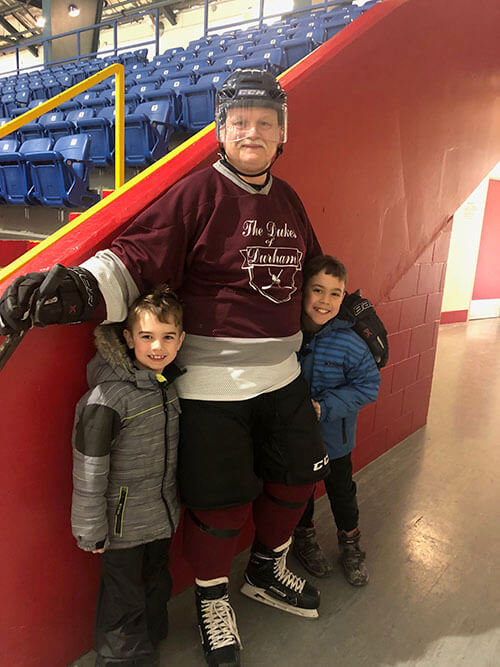
“Audio is still an important part of my daily routine. I’m up at 5:30 a.m. to listen every morning. I find my ears are better in the morning. I have three rooms for evaluation in my home. Right now, you can see a product over there called a 3.14 a DAC streamer combo. I’m still very heavily involved in providing feedback to Bryston. I listen often at the end of the day as well.”
“I might have had a bad day from time to time, but during the most stressful times, I had the firefighting work as a safety net. And the opposite was true when I had a bad day firefighting, I could then focus on audio. As captain on the rescue truck, I might come home depressed and I’d do some listening and my focus on the music probably helped as therapy. I’m a Libra and so I’m a pretty balanced person. My childhood may have been imbalanced, but ironically, it might be because of the way I grew up that I don’t sweat the small stuff.”
There was one problem with James’ approach though. “In the early days of my relationship with Jacquelynn, she might be upset about the floors yellowing and I’d say, ‘Don’t sweat the small stuff. Tomorrow you might be dead!’ The trouble with that is sometimes I came across like I didn’t take her concerns seriously. And I didn’t build a bridge across that, she did. We decided early on that I’ll work three jobs while she’d stay home. She was the matriarch. The kids always had her, and I’d show up at the hockey games, et cetera. I was more distant but she was the rock that held the family together. It’s a lot like the way I grew up. My mother was very much an at-home mom and my father was holding down two jobs as well, so he was the one coming home and laying down the law. And that dynamic repeated in my family. Even today if the boys have a problem, they typically go to Jacquelynn first. At the very least, I think they respect me … That’s my role in life.”





